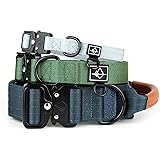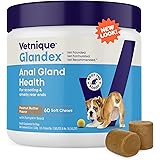
Fecuria 3-Step Wide Dog Stairs with Hidden Storage 18" H, Joint-Friendly Pet Steps for High Bed Couch Window Car, Non-Slip Sturdy Pet Stairs for Small/Medium/Large Old Dogs Cats Up to 200lbs, Grey
$27.99 (as of 02/08/2026 14:07 GMT +00:00 - More infoProduct prices and availability are accurate as of the date/time indicated and are subject to change. Any price and availability information displayed on [relevant Amazon Site(s), as applicable] at the time of purchase will apply to the purchase of this product.)Made to ROAM Premium Dog Collar - Adjustable Heavy Duty Nylon Collar with Quick-Release Metal Buckle (Colorado Nightsky, Classic Size 3)
$20.99 (as of 02/08/2026 14:12 GMT +00:00 - More infoProduct prices and availability are accurate as of the date/time indicated and are subject to change. Any price and availability information displayed on [relevant Amazon Site(s), as applicable] at the time of purchase will apply to the purchase of this product.)Bedsure Orthopedic Dog Beds Large Sized Dog - Washable Large Dog Cat Bed Waterproof, Comfort Dogs Couch Sofa with Washable Removable Cover, Pet Bed with Nonskid Bottom, Grey, 35"
$36.08 (as of 02/08/2026 14:12 GMT +00:00 - More infoProduct prices and availability are accurate as of the date/time indicated and are subject to change. Any price and availability information displayed on [relevant Amazon Site(s), as applicable] at the time of purchase will apply to the purchase of this product.)Amazon Echo Show 5 (newest model), Smart display, Designed for Alexa+, 2x the bass and clearer sound, Charcoal
$89.99 (as of 02/08/2026 14:12 GMT +00:00 - More infoProduct prices and availability are accurate as of the date/time indicated and are subject to change. Any price and availability information displayed on [relevant Amazon Site(s), as applicable] at the time of purchase will apply to the purchase of this product.)QUMY Dog Shoes for Large Dogs, Medium Dog Boots & Paw Protectors for Winter Snowy Day, Summer Hot Pavement, Water-Resistant in Rainy Weather, Outdoor Walking, Indoor Hardfloors Skid-Resistant Sole
$19.71 (as of 02/08/2026 14:12 GMT +00:00 - More infoProduct prices and availability are accurate as of the date/time indicated and are subject to change. Any price and availability information displayed on [relevant Amazon Site(s), as applicable] at the time of purchase will apply to the purchase of this product.)FURWEY Tennis Balls for Dogs 16 Pack,2.5 inches,Durable and Non-Toxic Dog Toys Balls with Mesh Bag,Colorful Fetch Toys Balls for pet Dog (Non Squeaky)
$17.99 (as of 02/08/2026 14:07 GMT +00:00 - More infoProduct prices and availability are accurate as of the date/time indicated and are subject to change. Any price and availability information displayed on [relevant Amazon Site(s), as applicable] at the time of purchase will apply to the purchase of this product.)Purina ONE Dry Dog Food Lamb and Rice Formula - 31.1 lb. Bag
$48.98 (as of 02/08/2026 14:07 GMT +00:00 - More infoProduct prices and availability are accurate as of the date/time indicated and are subject to change. Any price and availability information displayed on [relevant Amazon Site(s), as applicable] at the time of purchase will apply to the purchase of this product.)2026 New Dog Toys, Indestructible Plush Dog Toy for Aggressive Chewers, Interactive Squeaky Soft Puppy Chew Toy, Durable Teething Toys for Small Medium Large Dogs (Brown)
$6.48 (as of 02/08/2026 14:07 GMT +00:00 - More infoProduct prices and availability are accurate as of the date/time indicated and are subject to change. Any price and availability information displayed on [relevant Amazon Site(s), as applicable] at the time of purchase will apply to the purchase of this product.)Hoki Found -Waterproof Pet Feeding Mats with High Lips - Multiple Size and Colors for Dogs, Cats & Others-G
$12.99 (as of 02/08/2026 14:12 GMT +00:00 - More infoProduct prices and availability are accurate as of the date/time indicated and are subject to change. Any price and availability information displayed on [relevant Amazon Site(s), as applicable] at the time of purchase will apply to the purchase of this product.)Puppy vaccines are an essential part of responsible pet ownership. They play a crucial role in protecting your puppy from potentially life-threatening diseases and ensuring their overall health and well-being. In this article, we will explore the benefits of puppy vaccines, common diseases that can be prevented through vaccination, the science behind vaccines, the importance of timely vaccinations, how vaccines work to protect your puppy’s health, the role of vaccines in building immunity, the risks of not vaccinating your puppy, the cost-effectiveness of vaccines, the social responsibility of vaccinating your puppy, and the peace of mind that comes with knowing your puppy is protected.
Key Takeaways
- Puppy vaccines protect against common diseases and illnesses
- Vaccinations should be given on a timely schedule to ensure maximum protection
- Vaccines work by building your puppy’s immunity to specific diseases
- Not vaccinating your puppy puts them at risk for serious health problems
- Vaccinating your puppy is a cost-effective and socially responsible decision that provides peace of mind.
Understanding the Benefits of Puppy Vaccines
Vaccinating your puppy has numerous benefits. Firstly, it helps prevent diseases that can be fatal or cause severe illness in puppies. Vaccines stimulate your puppy’s immune system to produce antibodies that fight off specific diseases. By vaccinating your puppy, you are providing them with immunity against these diseases and reducing their risk of contracting them.
Secondly, vaccines can save your puppy’s life. Diseases such as parvovirus and distemper can be deadly for puppies. Vaccinating them against these diseases significantly reduces their chances of becoming infected and suffering from severe illness or death.
Common Puppy Diseases and Their Prevention
There are several common diseases that puppies can contract if they are not properly vaccinated. These include parvovirus, distemper, hepatitis, leptospirosis, and kennel cough.
Parvovirus is a highly contagious disease that affects a dog’s gastrointestinal tract. It can cause severe vomiting, diarrhea, dehydration, and even death. Distemper is another highly contagious viral disease that affects a dog’s respiratory system and nervous system. It can lead to respiratory problems, seizures, and death.
Hepatitis is a viral infection that affects a dog’s liver and can cause liver failure. Leptospirosis is a bacterial infection that can lead to kidney and liver damage. Kennel cough is a respiratory infection that causes a persistent cough and can be easily spread among dogs in close quarters.
The Science Behind Puppy Vaccines
| Vaccine Type | Recommended Age | Number of Shots | Protection Against |
|---|---|---|---|
| DHPP | 6-8 weeks | 3-4 | Distemper, Hepatitis, Parvovirus, Parainfluenza |
| Rabies | 12-16 weeks | 1-3 | Rabies virus |
| Bordetella | 6-8 weeks | 1-2 | Bordetella bronchiseptica (kennel cough) |
| Leptospirosis | 12-16 weeks | 2 | Leptospira bacteria |
Vaccines work by stimulating the immune system to produce antibodies that recognize and fight off specific diseases. They contain small amounts of the virus or bacteria that cause the disease, or parts of the virus or bacteria, which are harmless but still trigger an immune response.
There are different types of vaccines, including killed vaccines, modified live vaccines, and recombinant vaccines. Killed vaccines contain inactivated viruses or bacteria, while modified live vaccines contain weakened forms of the virus or bacteria. Recombinant vaccines use genetic engineering techniques to produce proteins that mimic the virus or bacteria, triggering an immune response.
The Importance of Timely Vaccinations for Puppies
Timely vaccinations are crucial for puppies because their immune systems are still developing and they are more susceptible to diseases. It is important to follow the recommended vaccination schedule provided by your veterinarian to ensure your puppy receives the necessary vaccines at the right time.
Puppies typically receive their first set of vaccines at around 6-8 weeks of age. These initial vaccines help protect them against diseases such as parvovirus and distemper. Booster shots are then given every few weeks until the puppy is around 16 weeks old to ensure they develop full immunity.
How Vaccines Work to Protect Your Puppy’s Health

Vaccines work by stimulating the immune system to produce antibodies that recognize and fight off specific diseases. When a puppy is vaccinated, their immune system recognizes the harmless parts of the virus or bacteria in the vaccine as foreign and mounts an immune response.
The immune system produces antibodies that specifically target the virus or bacteria in question. These antibodies remain in the puppy’s system, ready to fight off any future infections. If the puppy is exposed to the actual virus or bacteria, their immune system can quickly recognize and destroy it, preventing the development of the disease.
Vaccines not only protect the individual puppy but also help prevent the spread of diseases within the community. When a large percentage of the population is vaccinated, it creates what is known as herd immunity. This means that even those who are not vaccinated are protected because there are fewer opportunities for the disease to spread.
The Role of Vaccines in Building Your Puppy’s Immunity
Vaccines play a crucial role in building your puppy’s immunity. When a puppy receives a vaccine, their immune system is exposed to harmless parts of the virus or bacteria, which stimulates an immune response. This response helps train the immune system to recognize and fight off specific diseases.
By vaccinating your puppy, you are essentially giving their immune system a head start in recognizing and fighting off potential threats. This early exposure helps build their immunity and prepares them to effectively respond to future infections.
The Risks of Not Vaccinating Your Puppy
Not vaccinating your puppy can put them at risk for serious diseases. Puppies have immature immune systems, making them more susceptible to infections. Without proper vaccination, they are vulnerable to diseases such as parvovirus and distemper, which can be fatal.
Additionally, not vaccinating your puppy puts other dogs at risk as well. If your unvaccinated puppy becomes infected with a contagious disease, they can spread it to other dogs they come into contact with. This can lead to outbreaks within the community and put other dogs’ health and lives at risk.
The Cost-Effective Nature of Puppy Vaccines
While there is a cost associated with vaccinating your puppy, it is often more cost-effective in the long run. Vaccines help prevent costly treatments for diseases that can be prevented through vaccination.
Treating diseases such as parvovirus or distemper can be expensive and may require hospitalization and intensive care. By vaccinating your puppy, you are significantly reducing their risk of contracting these diseases and the associated costs of treatment.
The Social Responsibility of Vaccinating Your Puppy
Vaccinating your puppy is not only important for their health but also for the health of the entire dog community. By vaccinating your puppy, you are fulfilling your social responsibility as a pet owner and helping protect other dogs in your community.
When a large percentage of the dog population is vaccinated, it creates herd immunity, which helps prevent the spread of diseases. This is especially important for dogs that cannot be vaccinated due to medical reasons or young puppies who have not yet completed their vaccination series.
The Peace of Mind That Comes with Vaccinating Your Puppy
Vaccinating your puppy can give you peace of mind knowing that you have taken the necessary steps to protect their health. Knowing that your puppy is vaccinated and immune to certain diseases can help you relax and enjoy your time with them without constantly worrying about their well-being.
By vaccinating your puppy, you are providing them with the best chance at a healthy and happy life. You can rest easy knowing that you have done everything in your power to protect them from potentially life-threatening diseases.
In conclusion, puppy vaccines are an essential part of responsible pet ownership. They provide numerous benefits, including preventing diseases, saving lives, and building immunity. Timely vaccinations are crucial for puppies, and following the recommended vaccination schedule is important to ensure their protection.
Vaccines work by stimulating the immune system to produce antibodies that fight off specific diseases. They are cost-effective in the long run and fulfill a social responsibility by protecting other dogs in the community. Vaccinating your puppy can give you peace of mind and allow you to fully enjoy your time with them.
It is important to consult with your veterinarian about the appropriate vaccines for your puppy and to follow their recommendations. By vaccinating your puppy, you are taking a proactive step towards ensuring their health and well-being.
FAQs
What are puppy vaccines?
Puppy vaccines are injections given to puppies to protect them from various diseases and illnesses.
Why are puppy vaccines important?
Puppy vaccines are important because they help protect puppies from potentially deadly diseases and illnesses. Vaccines also help prevent the spread of diseases to other animals and humans.
What diseases do puppy vaccines protect against?
Puppy vaccines protect against a variety of diseases, including distemper, parvovirus, hepatitis, rabies, and more.
When should puppies receive their first vaccines?
Puppies should receive their first vaccines at around 6-8 weeks of age.
How often do puppies need to be vaccinated?
Puppies need to be vaccinated multiple times during their first year of life, and then receive booster shots throughout their adult life to maintain immunity.
Are puppy vaccines safe?
Yes, puppy vaccines are generally safe. However, like any medical treatment, there is a small risk of side effects. It is important to discuss any concerns with a veterinarian.
What happens if a puppy doesn’t receive vaccines?
If a puppy doesn’t receive vaccines, they are at risk of contracting and spreading potentially deadly diseases. They may also be unable to participate in certain activities, such as travel or dog shows, without proof of vaccination.
















